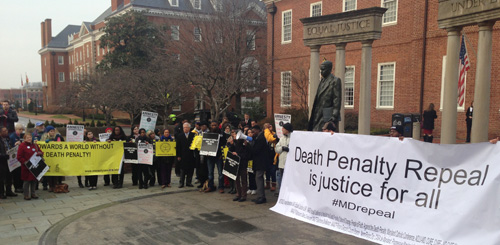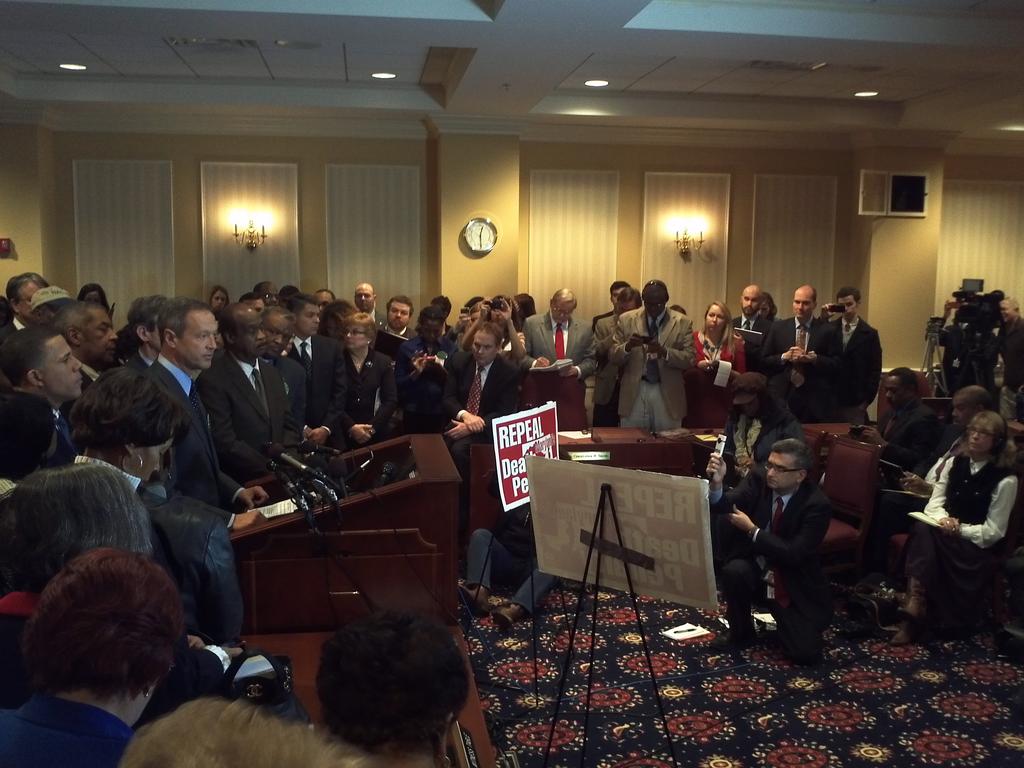
Amnesty member Stanford Fraser rallies supporters of death penalty repeal in Annapolis with Jane Henderson of MD CASE.
As of this writing, 33 states in the U.S. still retain the death penalty (and two more still have inmates on death row). There is also a Federal death penalty and a death penalty in the U.S. military. The kangaroo courts at Guantánamo can issue death sentences too.
Though we are definitely seeing a decline in support for the death penalty in the U.S., that’s still a lot of capital punishment. To truly and sustainably overcome this culture of casual killing we will need – and we are building – a powerful grass-roots movement.
That’s why a victory for abolition in a state like Maryland, if it happens, will be so important. Change – lasting change – in the United States, where human rights are often ignored or dismissed, is going to come from the ground up … from the states, and even more locally from faith groups, campuses and communities. SEE THE REST OF THIS POST
